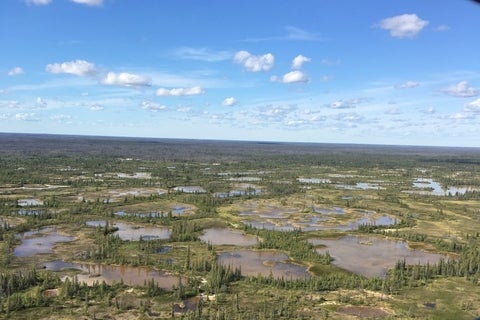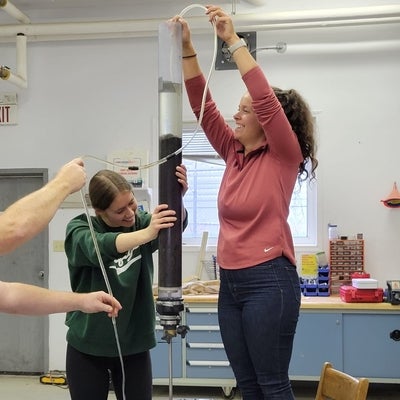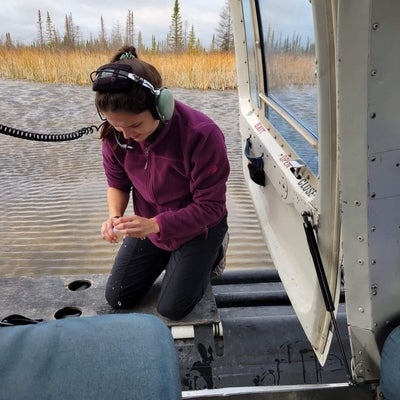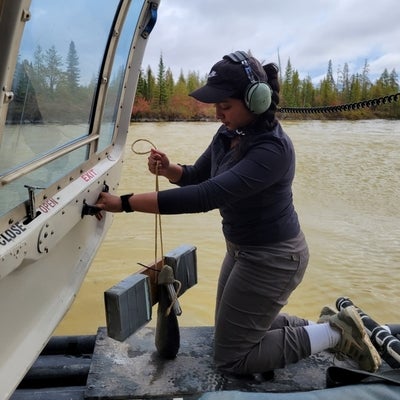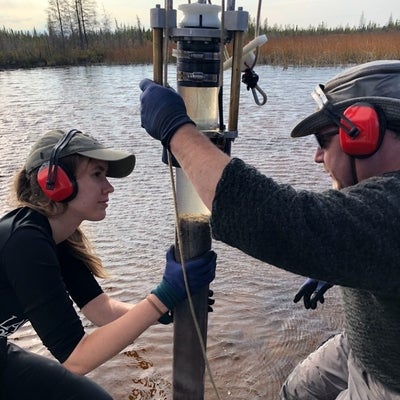Overview
Research in the Hall Lab centers on the analysis of environmental data that spans brad scales of space (entire landscapes) and time (decades to centuries) to improve understanding of how anthropogenic and natural processes alter inland freshwater ecosystems. Our research spans fields of aquatic ecology, hydrology and paleoenvironmental science to assess effects of multiple stressors (river regulation, contaminants from mining, climate) on lakes, wetlands and reservoirs. A goal is to improve methods to quantify and predict ecosystem responses during degradation and recovery phases due to human disturbances and natural phenomena. Current areas of active research include the Whooping Crane Nesting Region located in Wood Buffalo National Park (Northwest Territories and northern Alberta), Peace-Athabasca Delta (northern Alberta, including Wood Buffalo National Park), Thermokarst (permafrost-rich) landscapes (Vuntut National Park and the Old Crow Flats in Yukon, Wapusk National Park and Hudson Bay Lowlands in northern Manitoba), and the Grand River Watershed (Ontario). We collaborate with many stakeholders, including industry, government, and aboriginal and First Nations communities, and with other academic researchers.
Our gamma spectrometry facility for dating sediment cores during the past ~150 years by 210Pb and 137Cs methods is now part of the Environment Isotope Laboratory. Analyses from these facilities can be provided on a contract basis. If interested, direct your enquiries to Rhys Gwynne (rgwynne@uwaterloo.ca) or Johan Wiklund (jarvik@rogers.com).

